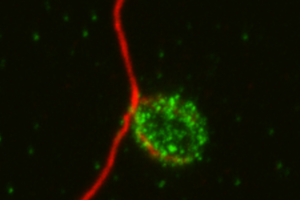From deciphering underlying genetic factors of diseases to developing cutting-edge genome technology, our scientists are making impactful discoveries everyday.
Strength in Genetics and Genomics Research
The Department of Genetics has traditional strengths in computational biology and genome science, as well as model organism, evolutionary and human genetics. Recent specialties include neurological disorders, cellular bioenergetics, epigenomics, personalized medicine and genome technology development.
We have established leadership in the following flagship NIH genomic medicine themed projects:
- The Human Pangenome Project (NHGRI)
- The Impact of Genetic Variation on Function (NHGRI)
- The Long Life Family Study (NIA)
- Somatic Mosaicism across Human Tissues (NIH Common Fund)
- Multi-Omics for Health and Disease (NHGRI, NCI, NIEHS)
- The BRAIN (The Brain Research through Advancing Innovative Neurotechnologies) Initiative Cell Atlas Network (NIMH)
Within the close-knit research community of Washington University School of Medicine, our scientists are supported by a strong foundation. School of Medicine Facts & Figures
| #2 NIH Funding (2023) | $838.3 Million Research Funding 2022 | 19 Nobel Laureates |
Latest News
New study sheds light on how genetic variation in motile cilia affects cilia structure and function
Defects in motile cilia in humans cause the rare disease Primary Ciliary Dyskinesia (PCD), affecting approximately 1 in every 10,000 to 30,000 people. People who have PCD are characterized by recurrent respiratory infections, left-right asymmetry defects, ear infections, and infertility. Even with genome and exome sequencing, 30% of the patients still don’t have a gene […]
Dr. Ting Wang inducted as an AIMBE fellow (Links to an external site)
Election to AIMBE’s College of Fellows is limited to the top 2% of medical and biological engineers in these fields. Those elected are considered to have made outstanding contributions to engineering and medicine research, practice or education. Congratulations to Dr. Ting Wang for being inducted as an AIMBE fellow.
Congratulations to Caitlin Dingwall for winning the O’Leary Prize
Each year the O’Leary Competition acknowledges the most original and important accomplishments in Neuroscience research at WashU by a predoctoral student or postdoctoral fellow. This year, Caitlin Dingwall, an MD/PhD student in the Milbrandt Lab won the prize along with Yun Chen, a graduate student in the Holtzman Lab!


